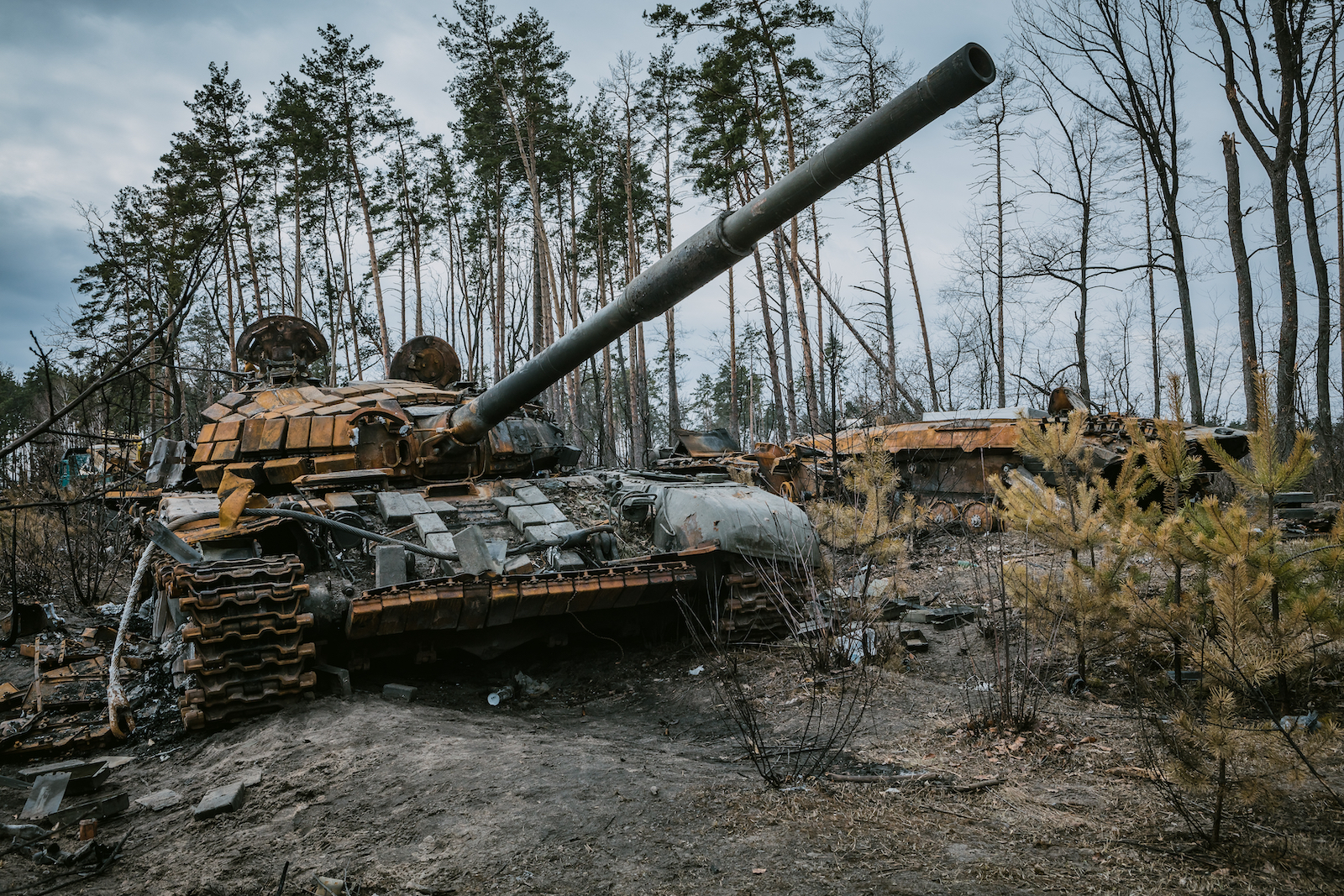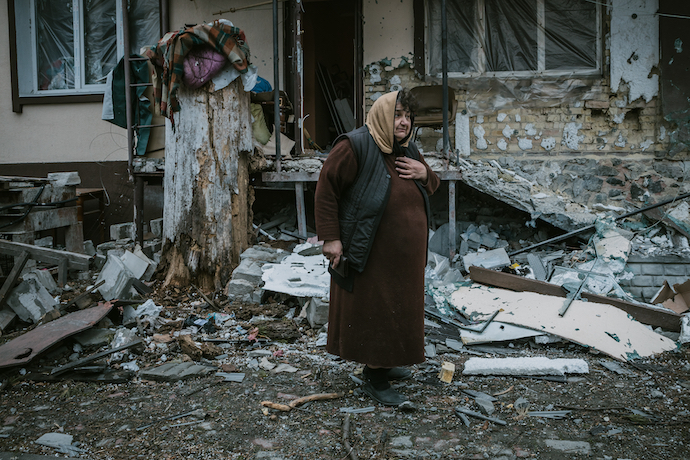
Western Sanctions On Russia Miss Their Mark
The West has been threatening economic sanctions against Russia since the very beginning of the Russo-Ukrainian conflict. Western leaders believed that the economic and political impact of these threats would serve as a strong deterrent against Vladimir Putin and the Russian government as a whole. Russia’s current full-blown invasion shows they were wrong. Evidently, Putin and his war machine aren’t fretting about the economic pushback. Instead, it’s the innocent people within Russia who are feeling the sting of these sanctions.
Here we come to a point of cognitive dissonance in the West. Over and over again, Western media has rightfully stated that the citizens of Russia are not to blame for this current conflict, but the leadership within the country. Why, then, are we celebrating and encouraging policies that will drive Russian citizens deeper into poverty with negligible effect on the Russian oligarchs and politicians who are actually making these decisions?
The literature on the effectiveness of sanctions is split. The consensus seems to be that sanctions only sometimes create meaningful change. That makes sense, given that measuring and creating accurate data on the efficacy of sanctions is fundamentally an impossible task. Even when a country does change its behavior, it’s often impossible to quantify how much sanctions directly contributed to the change.
What is quantifiable is the cost of sanctions. For instance, Russia’s major stock index has plummeted by 33% since the start of the year; inflation has risen to 15.66%; and Russian banks have been subjected to sanctions and barred from the global financial system. Russia’s economy overall is expected to contract by 15% by the end of 2022. Together, these economic repercussions mean those who want to leave Russia are trapped, with little to no options for how to use their money.
The average Russian, with no direct involvement in the war, find their purchasing power decimated, their economy stagnant, and their livelihood at risk. Estimates from early March indicate that approximately 200,000 Russians had fled the country, with an expected 75,000 more to flee throughout April. With the majority of flights banned, Russians are forced to flee by train and are rushing to withdraw their money before being locked out of foreign banks.

The average Russian simply can’t afford to flee and support themselves or their family. The median wealth of Russians in 2014 was just $2,360. A vast majority of Russians already live in relative poverty with minimal assets and income, meaning that these Western sanctions will tip the vast majority of Russians over the edge and into utter ruin.
It’s clear to see that these sanctions would have never affected Putin in the first place. Russia has had the decision-making power, wealth, intelligence, and agency to set itself up for years before it makes any risky decision. To no surprise, that is exactly what it’s been doing for the last decade, hooking Germany on Russian oil, disengaging from the West, and now attempting to protect itself from the effects of sanctions with methods like creating a gold standard. For the first time in its history, Russia holds a greater percentage of gold than it does U.S. dollars in its reserves.
This isn’t an isolated case of sanctions having adverse impacts either. The 2014 sanctions had very little impact on the Russian government’s involvement in the Donbas region, whilst again tanking the ruble and Russian stock market. What was the end result of those sanctions? Clearly, a negligible one, as it did not stop the Russian invasion nor did it deter Putin from striving for his original goals.
The reality is it is extremely hard to effectively target the leadership of a country without significant collateral damage to millions of individuals. To make matters worse, U.S. sanctions often adversely affect the U.S. economy, businesses, and individuals as well. A study completed in 1997 found that as a result of sanctions, exports decreased by as much as $15-20 billion — which represented 200,000 jobs if other sectors of the market could not pick up the slack. Russia simply applies the exact same pressure back onto Western countries, further causing economic harm to U.S. and Russian businesses and families alike.
It is undeniable Putin will do whatever it takes to keep Ukraine from joining NATO. In fact, it’s Ukrainian President Volodymyr Zelensky’s willingness to concede this point that’s advancing peace talks, not Western sanctions. All that sanctions do is victimize Russian businesses, workers, and families, making them suffer the consequences of a war they did not choose to start and have little agency to stop.
Instead of punishing the Russian people who aren’t at fault, the West should be presenting their approach to governance and liberal ideology as the better alternative. That’s how the Soviet Union fell — not from external pressure, but from the lack of confidence of its own people.
Arguably, the West has done this to a degree already. By intertwining the economies between the West and the East, those within Russia have had the opportunity to develop social, cultural, and business ties with the other side. But in sanctioning Russia, the West is once again alienating Russians. Simply fuelling the conflict further will only bring the divide that we have seen happen so many times, from the issues in the Cold War and the division of Berlin, to the divisions in Korea and the Middle East.
The West then needs to foster the relationships and opportunities with the Russian people, whilst ostracizing those directly within the government who are actually making the decisions. It has won the ideological battle in the past and can do it again without punishing innocent people who are attempting to survive day by day.
